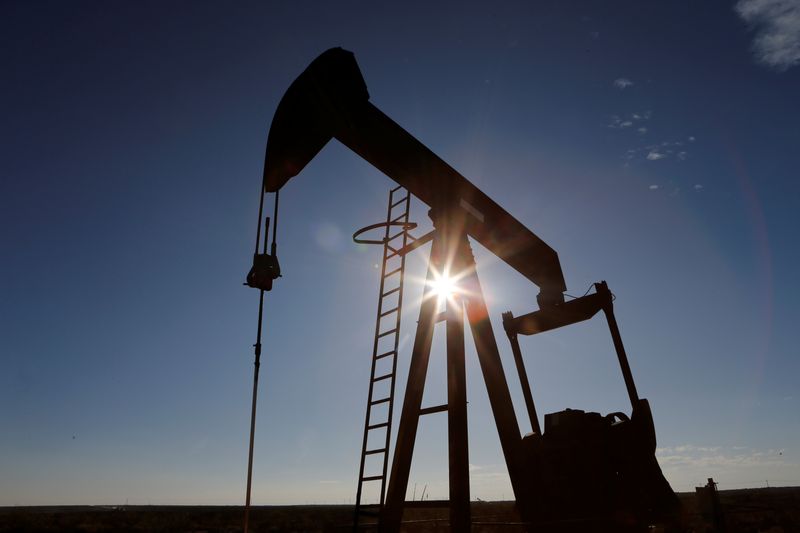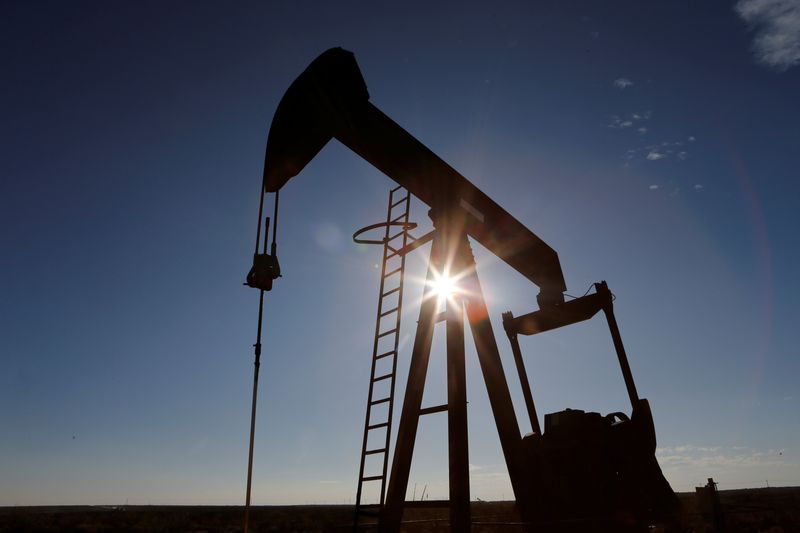
By Florence Tan
(Reuters) -Oil prices inched higher on Friday, on track for a weekly rise of more than 4%, as the Ukraine war intensified, with Russian President Vladimir Putin warning of a global conflict.
Brent crude futures climbed 17 cents, or 0.2%, to $74.40 a barrel by 0722 GMT. U.S. West Texas Intermediate crude futures rose 20 cents, or 0.3%, to $70.30 per barrel.
Both contracts jumped 2% on Thursday and are set to cap gains of more than 4% this week, the strongest such performance since late September, as Moscow stepped up its Ukraine offensive after Britain and the United States allowed Kyiv to strike Russia with their weapons.
Putin said on Thursday Russia had fired a ballistic missile at Ukraine and warned of a global conflict, raising the risk of oil supply disruption by one of the world’s largest producers.
This month Russia said it produced about 9 million barrels of oil a day, even with output declines following import bans tied to its invasion of Ukraine and supply curbs by producer group OPEC+.
Ukraine has used drones to target Russian oil infrastructure, for instance in June, when it used long-range attack drones to strike four Russian refineries.
Swelling U.S. crude and gasoline stocks and forecasts of surplus supply next year limited price gains. [EIA/S]
“Our base case is that Brent stays in a $70 to $85 range, with high spare capacity limiting price upside, and the price elasticity of OPEC and shale supply limiting price downside,” Goldman Sachs analysts led by Daan Struyven said in a note.
“However, the risks of breaking out are growing,” they said, adding that Brent could rise to about $85 a barrel in the first half of 2025 if Iran supply drops by 1 million barrels a day on tighter sanctions by the administration of U.S. President-elect Donald Trump.
Some analysts forecast another jump in U.S. oil inventories in next week’s data.

“We will be expecting a rebound in production as well as U.S. refinery activity next week that will carry negative implications for both crude and key products,” said Jim Ritterbusch of Ritterbusch and Associates in Florida.
The world’s top crude importer, China, announced policy measures on Thursday to boost trade, including support for energy product imports, amid worries over Trump’s threats to impose tariffs.
This post is originally published on INVESTING.




